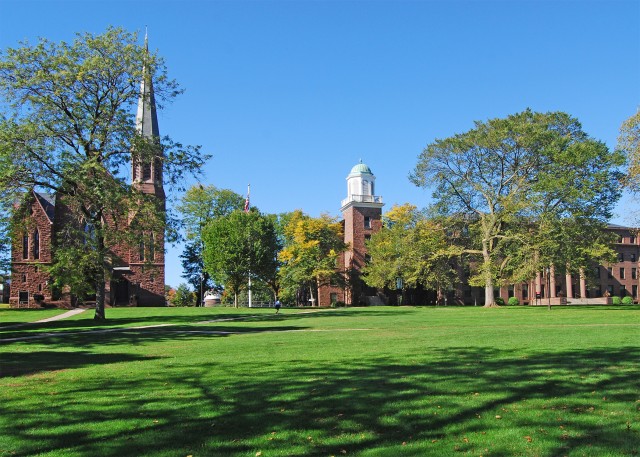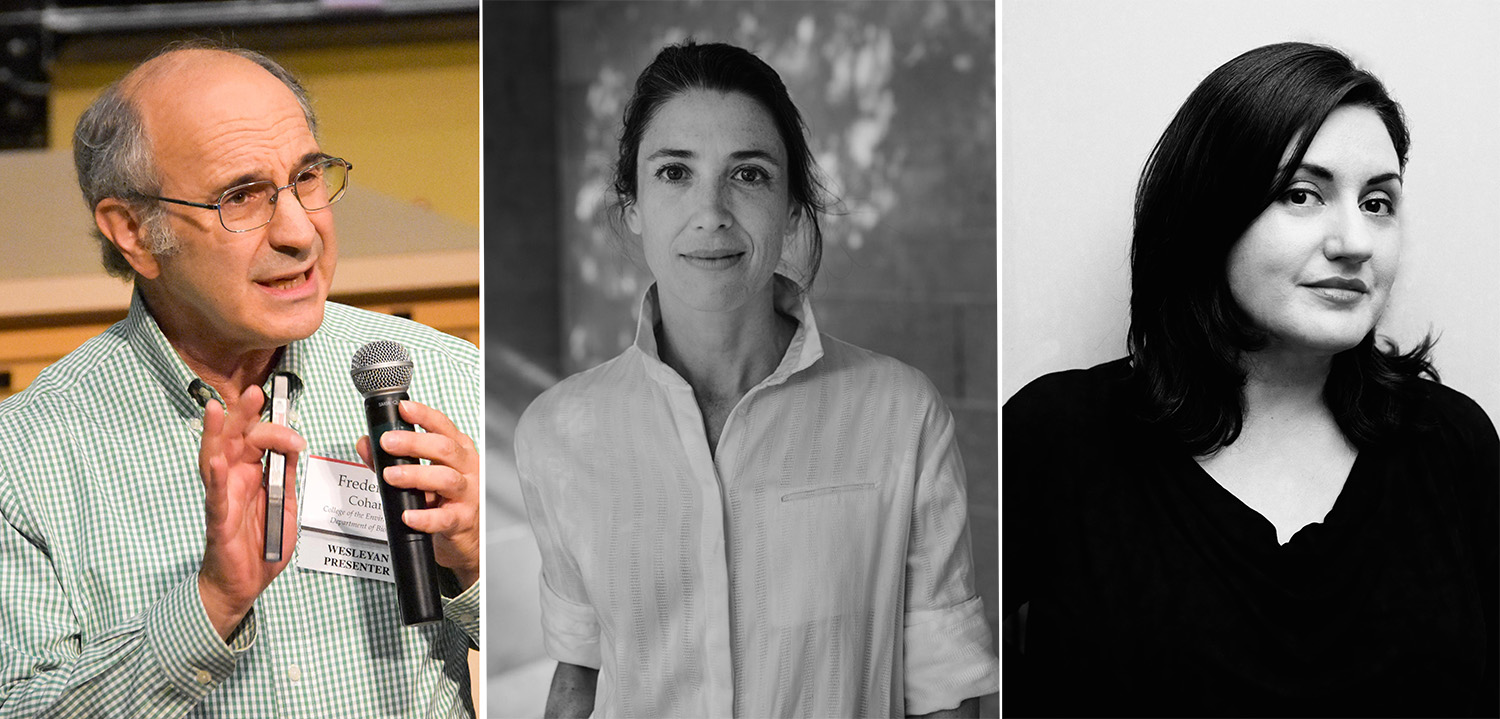Wesleyan Announces 2022 Binswanger Prizes for Excellence in Teaching


Wesleyan University will recognize three outstanding faculty members across the fields of biology, Spanish, and history at the 190th Commencement ceremony with the awarding of the Binswanger Prizes for Excellence in Teaching. Frederick M. Cohan, professor of biology; María Ospina, associate professor of Spanish; and Victoria Smolkin, associate professor of history, were selected by their peers after receiving strong recommendations from alumni of the last 10 graduating classes, as well as current juniors, seniors, and graduate students.
Underscoring Wesleyan’s commitment to its scholar-teachers, these annual prizes are made possible by gifts from the family of the late Frank G. Binswanger Sr., Hon ’85. Recipients are chosen each spring by a committee of faculty and members of the Alumni Association Executive Committee.
2022 Binswanger Prizes for Excellence in Teaching Recipients:
Frederick M. Cohan, professor of biology, has been a member of Wesleyan’s faculty since 1986, serving as chair of the Department of Biology from 1999 to 2002, and from 2012 to 2013. He has a BS in biology from Stanford University, a PhD from Harvard University in organismic and evolutionary biology—the first awarded PhD from Harvard’s then-new department. Cohan was awarded the Huffington Foundation Chair in the College of the Environment in 2019, a position he continues to hold, and was elected to the Connecticut Academy of Science and Engineering in 2017. He is also serving as the chair of the Environmental Studies Program for the 2021–22 academic year. Professor Cohan teaches various courses at Wesleyan in evolutionary biology, bioinformatics, and the effects of global change on infectious disease, while continuing to study the origins of diversity in bacteria. Cohan has received numerous grant awards, participated in symposium talks, led workshops, belongs to several professional societies, and has authored and co-authored more than 100 academic papers throughout his career.
María Ospina, associate professor of Spanish, began teaching in Wesleyan’s Department of Romance Languages and Literatures in 2011. She earned a BA in history from Brown University, and an MA and PhD in Hispanic literatures from Harvard University, where she was a college postdoctoral fellow. She has authored numerous academic and nonacademic articles and published her first book, El rompecabezas de la memoria: Literatura, cine y testimonio de comienzos de siglo en Colombia (2019), as well as a collection of short stories, Azares del cuerpo (2017) that has been translated into Italian and English. She has served as chair of the Latin American Studies program since 2021 and has been a member of the Vassar-Wesleyan Madrid Program Consortium since 2016. She directed the Vassar-Wesleyan program in Madrid in 2017–18. And since 2012, Ospina has organized Wesleyan’s annual Hispanic Film Series that showcases Latin American and Spanish film, while also receiving several fund grants to bring visiting Latin American filmmakers and artists to campus. Her courses include: Territories of Dwelling, Desire and Resistance in Latin America, Screening Youth in Contemporary Latin American Film, and Writing Short Fiction in Spanish.
Victoria Smolkin, associate professor of history, joined Wesleyan’s faculty in 2010. She holds a BA in European literature and history from Sarah Lawrence College, and an MA and PhD in history from the University of California, Berkeley. Smolkin’s work has been supported by various fellowships and grants, including Princeton University’s Shelby Cullom Davis Center for Historical Studies, the Social Science Research Council, and the Fulbright-Hays Fellowship. At Wesleyan, she was awarded the Carol A. Baker ’81 Memorial Prize for excellence in teaching and research, and faculty fellowships, including from the College of the Environment and Center for the Humanities. She has been invited to speak at lectures, seminars, and various symposia throughout the world about her studies of Communism, atheism, religion, and ideology in Russia and the former Soviet Union. Her first book, A Sacred Space Is Never Empty: A History of Soviet Atheism (2018), was awarded Honorable Mention for the 2019 Wayne S. Vucinich Book Prize for the most important contribution of Russian, Eurasian, and East European studies in any discipline of the humanities or social sciences. She is currently at work on two projects: “The Wall of Memory: Life, Death, and the Impossibility of History,” and “The World of Tomorrow: Communism, Cosmism, and the Fate of Utopia.”

